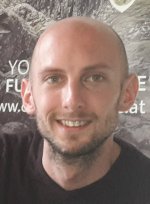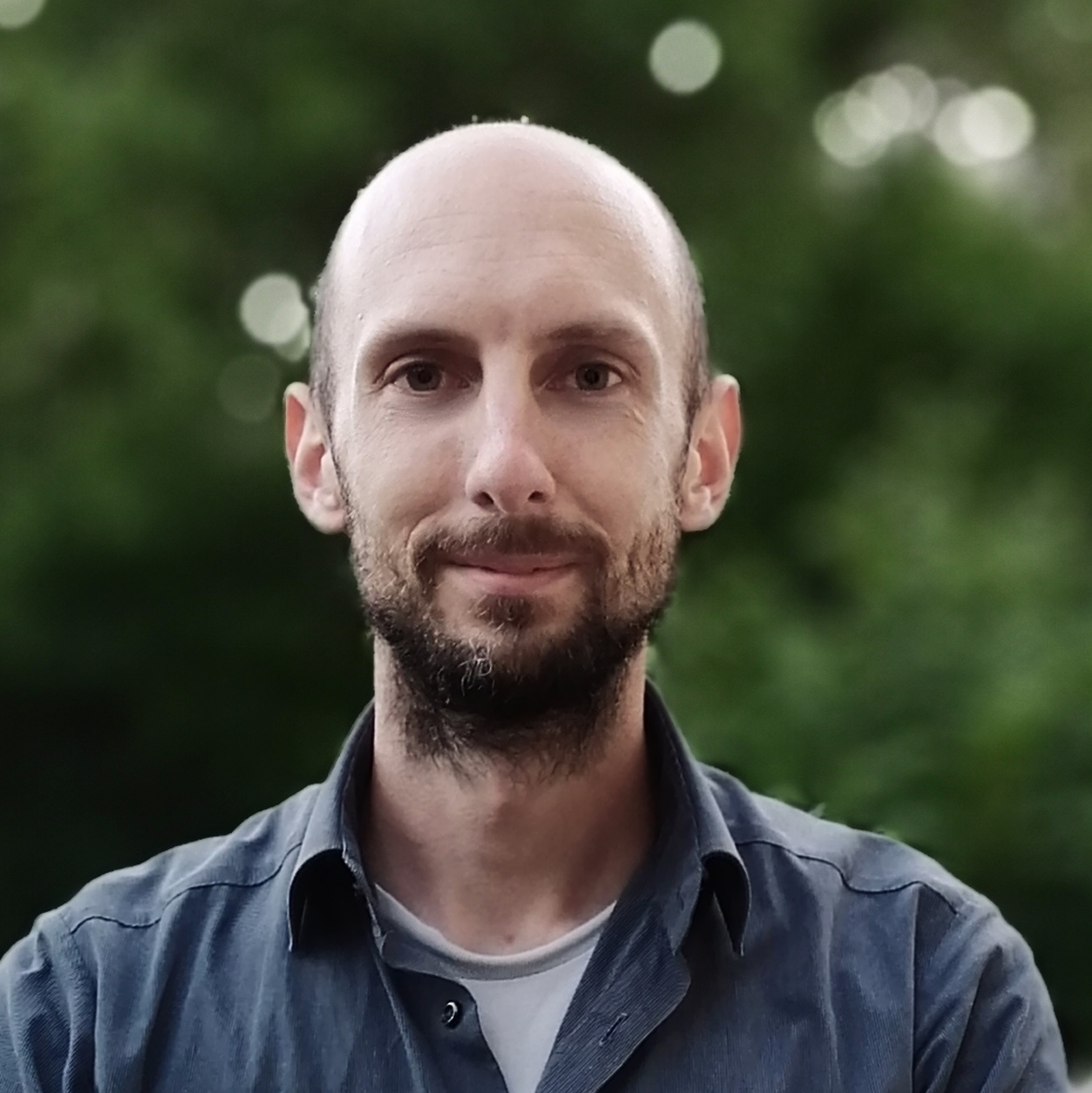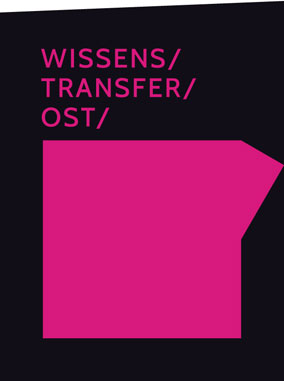
Florian Heigl
About Österreich forscht
What is Österreich forscht (www.citizen-science.at)?
The Citizen Science Network Austria (founded in 2017) with the associated online platform Österreich forscht (launched in 2014) is a network of institutions from the fields of science, research, education and practice. Taking into consideration the respective institutional scope, the network is pursuing the following goals:
- To further establish citizen science in Austria
- To promote the quality of citizen science in Austria
- To strengthen the profile of citizen science in Austria
The partner institutions declare that, in order to achieve these goals, they intend to fulfill the following tasks in particular:
- Participate in the annual Österreich forscht-platform meeting, which is part of the Austrian Citizen Science Conference.
- Use of the online platform Österreich forscht (www.citizen-science.at) to make Citizen Science and Citizen Science projects visible to the public .
- Establishment of and active cooperation in working groups on specific topics by representatives of the partner institutions
The Citizen Science Network Austria is coordinated by BOKU University in Vienna.
Österreich forscht also presents citizen science projects from all over Austria, in which interested people can participate. In addition to the project presentation, general information on citizen science, references to literature on citizen science and event announcements on Österreich forscht can be found. The platform itself was already launched in 2014 as an information portal, and after the founding of the CSNA it was upgraded with additional features to meet the needs of a growing network. Since then, the network's working groups and open calls for grants, jobs or conferences can be found there.
Our vision
Through citizen science, Österreich forscht creates a new culture of collaboration in research in Austria. By jointly working together with a wide variety of people and institutions and due to mutual appreciation and openness, Österreich forscht transforms the way research is thought and lived in Austria. Research should be understood as a tool by everyone and should be applied for peaceful purposes to meet the challenges of the present and the future ACTIVELY, TOGETHER. Österreich forscht enables all people to have access to research: because EVERYONE can be part of a successful research project.
Who works behind the scenes of Österreich forscht?
Both Österreich forscht and the Citizen Science Network Austria were founded and coordinated by Florian Heigl and Daniel Dörler, who began connecting actors in citizen science across all of Austria back in 2014 during their studies, thus laying the foundation for all future activities. At the beginning, most of the work was carried out on a purely voluntary basis by both founders, with occasional help with certain tasks from many others. As of 1 January 2019, the platform and network are now permanently funded by BOKU University which has now created a long-term future for citizen science in Austria.
Florian Heigl

Florian Heigl is a research assistant at BOKU University. In his bachelor and master studies, he has focused on the effects of different farming practices on earthworms in the soil. In his doctorate he discovered citizen science for himself and started the project Roadkill. Since then, he is enthusiastic about citizen science and strives to bring this enthusiasm into society without losing sight of the scientific quality.
Daniel Dörler
Daniel Dörler graduated from the University of Vienna with a diploma in zoology, followed by a doctorate in invasion biology at BOKU University. The topic of his doctoral thesis was the distribution of the invasive Spanish slug in Austria. What fascinates him about citizen science is the possibility to carry out completely new research projects together with interested and enthusiastic people.
In addition to the two founders, there are also the many organisers of past Austrian Citizen Science Conferences who, in doing so, helped to further develop the platform and network.
Objectives of Österreich forscht
The objectives of Österreich forscht are the networking of citizen science actors in Austria and beyond, the presentation of citizen science projects to an interested public, the further development of citizen science as a research method, the quality assurance of citizen science (both in terms of research and the collaboration of various people in the projects) and the dissemination of information on citizen science in Austria.
We are very pleased if you contact us:
Working group for citizen science
Institute of Zoology
BOKU University
Gregor-Mendel-Strasse 33
1180 Vienna
Phone: +43 (0)1 47654 83320
E-mail: This email address is being protected from spambots. You need JavaScript enabled to view it.
Facebook: https://www.facebook.com/csaustria
LinkedIn: https://www.linkedin.com/company/oesterreich-forscht
Youtube: https://www.youtube.com/channel/UC8fnoC8Y3xTiktZetU4aBfw
Logo
Only members of the Citizen Science Network Austria are permitted to use the logo as part of their citizen science activities. Use by or forwarding to third parties is forbidden without the permission of CSNA coordinators. This permission can be obtained from This email address is being protected from spambots. You need JavaScript enabled to view it. at request.
D-A-CH working group
Mission and goals of the working group
The aim of the WG is to intensify cooperation in German-speaking countries, to use synergies, to exchange best practices and to establish short paths of (informal) exchange. The goals are:
- The expansion of personal contacts and the establishment of closer cooperation.
- Identifying and setting common priorities
- To enable trilateral project consortia and to initiate concrete projects.
- The further development of CS in terms of content and quality in the German-speaking region
- A stronger and more uniform presence of CS in the international arena
Members
The members of the D-A-CH working group work at universities and research institutions or are otherwise active as actors in the context of citizen science. They come from the following institutions, among others:
- Österreich forscht / BOKU University
- OeAD – Zentrum für Citizen Science
- Schweiz forscht / Science et Cité
- Partizipative Wissenschaftsakademie (Universität Zürich/ ETH Zürich)
- mit:forschen! Gemeinsam Wissen schaffen (Wissenschaft im Dialog & Museum für Naturkunde Berlin)
- WWU Münster
- Friedrich-Schiller Universität Jena
- Leibniz-Institut für Deutsche Sprache (Mannheim)
- open science for open societies - os4os gUG
Contact/contact persons
Austria:
Daniel Dörler: This email address is being protected from spambots. You need JavaScript enabled to view it.
Florian Heigl: This email address is being protected from spambots. You need JavaScript enabled to view it.
Switzerland:
Tiina Stämpfli: This email address is being protected from spambots. You need JavaScript enabled to view it.
Olivia Höhener: This email address is being protected from spambots. You need JavaScript enabled to view it.
Germany:
Wiebke Brink: This email address is being protected from spambots. You need JavaScript enabled to view it.
Topics for 2025
The D-A-CH working group is planning the following joint activities for 2025:
- Citizen science conferences: There is potential for synergies in the national conferences held in Germany, Austria and Switzerland, which can be exploited even more. In 2025, members of the D-A-CH working group are represented in the respective other conference committees.
- Training offers: In the area of "Training", the D-A-CH working group 20253 deals with processing the knowledge gained in online open data workshops in 2023 and 2024 in the form of a guide or similar.
- The working group is currently working on submitting a contribution on the online workshops on the topic of open data to the upcoming CitSci Helvetia 2025.
Series: Open Data in Citizen Science
We kicked off our series of workshops on open data in citizen science with an introductory webinar on 3 July 2023. Hands-on workshops followed from September 2023, in which criteria, tools and best practices for open data in citizen science projects were developed for various specialist disciplines. The webinar was mandatory as an introduction for participation in the subject-specific workshops and can also be viewed here.
Webinar: Open Data in Citizen Science Projects
What does the term Open Data mean? What is the relevance of open data for citizen science? And what experiences and structures already exist in citizen science projects? In an introductory webinar, Prof. Dr Stefan Scherbaum (University of Dresden) and Dr Melanie Röthlisberger (University of Zurich) introduced the topic of open data. The event was aimed at newcomers to open data, i.e. project coordinators and interested parties from the field of citizen science who have little or no experience with open data in their projects. You can watch the webinar here.
Workshop: Open Data for the Humanities
In a hands-on workshop with speaker Dr Susanne Blumesberger, Msc. (University of Vienna), participants learned how to prepare their research data from citizen science projects for open access on the basis of test data and a data management plan.
Webinar: Digital Ethics in Citizen Science
Citizen science projects are inevitably subject to ethical considerations, especially through (or in) collaboration with people outside the research community. Many of these projects rely on digital tools for collaboration, especially when working with large numbers of citizen scientists. However, the use of these digital tools also raises specific ethical questions. What are these questions and how can they be addressed? What ethical challenges do citizen science projects face in the digital space? This was the topic of the D-A-CH-AG webinar on 27 September with expert Prof. Dr. Petra Grimm from the Stuttgart Media University.
Workshop: Open Data with Zenodo for Citizen Science
In the online workshop with Christian Erlinger and Kathrin Heim (both from the Zentral- und Universitätsbibliothek Luzern) on 14 June, project leaders who want to make their data openly available learned how the Zenodo platform works and how to prepare research data for it.
Workshop: Data submission & publication for citizen science biodiversity projects
The online workshop on November 14, 2024,, conducted by Daniel Tschink and Judith Engel of NFDI 4 Biodiversity, gave participants an insight into various discipline-specific data centres in biological and biodiversity research. They learned how to handle sensitive data and what constitutes a "good" data description. They also received a practical introduction to the GFBio Data Submission and Brokerage System: This service supports researchers in curating, archiving and publishing their datasets with the help of experts in renowned data centres for environmental, biodiversity and collections data.

Working group for citizen science in/with schools
Working group for citizen science in/with schools
Coordinators: Petra Siegele, Elisabeth Schauermann, Marika Cieslinski (currently on maternity leave) (Centre for Citizen Science, OeAD)
The working group ‘Citizen Science at/with schools’ was founded as part of the platform meeting on 26 June 2019 in Obergurgl to bring together the numerous experiences from the cooperation between science and schools. The members of the working group come from research institutions and schools.
Over the past few years, numerous competencies and knowledge have been built up in Austria through research-education collaborations, not least through the Sparkling Science research funding programme of the Federal Ministry of Education, Science and Research, or the Citizen Science Award organised by the Centre for Citizen Science since 2015, in which schools, youth groups, families and individuals are invited to participate in various research projects every year.
In 2021, the working group published the handout “Citizen Science - Research with Schools. Basics, recommendations & practical tips for joint projects”. A compact checklist provides a quick overview of the most important factors that should be considered in such a collaboration. The brochure is available for download on Zenodo (in German only).
In 2024, the working group designs a teacher training course to familiarise teachers at all school levels and forms with the integration of Citizen Science into school lessons.
If you have any questions about the working group, please contact This email address is being protected from spambots. You need JavaScript enabled to view it..
Working group for the Austrian Citizen Science Conference
The Austrian Citizen Science Conference takes place annually and is organised by the partners of the Citizen Science Network Austria.
Head: Daniel Dörler, Florian Heigl
The Working Group "Conference" organizes the annual Austrian Citizen Science Conference. It is composed of the local organization team, which changes every year depending on the conference location, and a team of dedicated individuals, which on the one hand takes care of the scientific support of the conference (i.e. mainly evaluating the incoming contributions for the respective conference), and on the other hand also prepares general documents, which enable a flow of information between the different local organization teams from one year to the next. Thus, the conference working group is a core element in the organization of Austria's largest Citizen Science event.
- Report on the ECSA/ACSC double conference 2024
- Report on the 2023 Austrian Citizen Science Conference
- Report on the 2022 Austrian Citizen Science Conference
- Report on the 2020 Austrian Citizen Science Conference
- Report on the 2019 Austrian Citizen Science Conference
- Report on the 2018 Austrian Citizen Science Conference
- Report on the 2017 Austrian Citizen Science Conference
- Report on the 2016 Austrian Citizen Science Conference
- Report on the 2015 Austrian Citizen Science Conference
If you are also interested in the conference working group, please get in touch with Daniel Dörler (This email address is being protected from spambots. You need JavaScript enabled to view it.) or Florian Heigl (This email address is being protected from spambots. You need JavaScript enabled to view it.).
Working group for legal aspects in citizen science
Head: Tobias Reckling, University of Vienna
In the course of creating quality criteria for citizen science projects on Österreich forscht, it soon became apparent that for certain areas recommendations for existing and new citizen science projects were needed, which could be used as a guideline for the project leaders. A very important area is legal issues, which often come up to project leaders for the first time in the context of citizen science projects::
- What is personal data and what is sensitive data?
- How must data be secured?
- May I use the data of my participants for my research?
- May I use images that my participants upload and/or send in the context of the project to promote the project?
These and many more questions are frequently asked by prospective project leaders. And often a project idea is not pursued further due to insufficient knowledge, half-truths or false information and the resulting fears of legal uncertainty.
For this reason, the working group for legal aspects in citizen science is developing a catalog of recommendations for general legal questions in the context of citizen science projects. It is based on the questions of ongoing projects in Austria and the input of lawyers who have specifically dealt with this topic. These recommendations also take into account the new Data Protection Regulations, which will come into force in May 2018, and are intended to provide guidance for starting or revising citizen science projects. However, the recommendations are no substitute for an intensive examination of the topic and, above all, for legal advice, as they can only be elaborated at a very general level.
The results of this working group will now be made freely available to all after completion here on Österreich forscht. If you have any questions about the working group, please feel free to contact us at any time at This email address is being protected from spambots. You need JavaScript enabled to view it..
Event: "Citizen Science & Law, part 1"
On June 27, 2018, an event on the topic of citizen science and law was held in cooperation with the Federal Ministry of Education, Science and Research, the University of Vienna and the Center for citizen science. The main focus of the event was on the effects of the General Data Protection Regulation (GDPR), which had come into force one month earlier, on citizen science projects. You will find the presentation of the speaker Dipl. Ing. Annemarie Hofer at the bottom of the page under the point "Download Attachments". The presentation is based on a master thesis.
A catalogue of recommendations for citizen science projects for implementing GDPR can be found on the Website "Zenodo".
The working group was coordinated in cooperation with Wissenstransferzentrum Ost (WTZ Ost).

Event: "Citizen Science & Law, part 2"
Citizen science thrives on the cooperation between a large number of participants, who bring with them a wealth of experience and a wide range of know-how. By including the potentials and knowledge of the participants, projects are made possible that would otherwise not be conceivable. The cooperation of different people in a research project is accompanied by a great responsibility in terms of data protection and compliance with legal regulations. In addition to the provisions of the European General Data Protection Regulation (GDPR), other regulations, such as copyrights (e.g. when creating texts or images) or licensing rights (e.g. when using texts or images) must be observed.
In a joint event on 28 May 2019, the Center for Citizen Science, the Citizen Science Network Austria and the Open Science Network Austria (OANA), as well as the Federal Ministry for Education, Science and Research invited project managers to learn more about “rights to images”, copyright law and licensing law in citizen science projects, among other subjects, and to discuss these with experts.
A report on the event can be downloaded on the website of the OeAD Centre for Citizen Science.
Working group for quality criteria
The working group for quality criteria was established to create criteria for the platform that are as objective, traceable and, above all, publicly visible as possible.
Head: Florian Heigl and Daniel Dörler, BOKU University
At the annual platform meeting of Österreich forscht on 1 March 2017, the partners decided to set up a working group on quality criteria for citizen science projects. This became necessary because, due to new funding programmes and the level of awareness of citizen science that has been achieved in the meantime, more and more projects consider themselves as citizen science, which also requested to be included in Österreich forscht. Up to this point, projects were examined by the platform coordinators for consistency with the different definitions of citizen science before they were accepted. In order to create objective, comprehensible and, above all, transparent criteria for the future, the working group for quality criteria was founded. The working group consists of project leaders and partners of Österreich forscht and is headed by Florian Heigl and Daniel Dörler.
Goals
- Development of binding quality criteria for citizen science projects on Österreich forscht - successfully completed
At the Austrian Citizen Science Conference 2018, the finalised quality criteria were presented. From March 2017 to February 2018, a total of 20 criteria were created to which all projects on Österreich forscht had to adapt. You can read about how this process was designed and what impact it had on Österreich forscht in an article in Citizen Science:Theory and Practice. - Continuous assessment of incoming project listings on Österreich forscht - ongoing
After the criteria were finalised, the listing process was described transparently on Österreich forscht. The working group has set itself the goal of continuously reviewing the incoming applications for listing and providing assistance in fulfilling the criteria. The aim is to conduct a dialogue with the project leaders, which will lead to a positive result. - Creation of supporting material- ongoing
In order to prevent misunderstandings in the interpretation of the criteria and to make the listing process as simple as possible, supporting material (e.g. FAQs) should be developed.
Background
The Österreich forscht platform (www.citizen-science.at) was founded in 2014 with the aim of (1) networking citizen science stakeholders in Austria, (2) providing as comprehensive an overview as possible of citizen science projects in Austria, and (3) generally developing the citizen science methodology.
Since 2017, many institutions active in citizen science have joined forces in the Citizen Science Network Austria on the initiative of the Österreich forscht platform and have committed themselves to promoting the quality of citizen science in Austria.
An important step towards promoting quality was the establishment of transparent criteria that projects wishing to be listed on the Österreich forscht platform must fulfil. The aim of these criteria is to ensure and further improve the quality of the projects presented on the platform. The currently valid catalogue is the third version (1.2) of the criteria.
From March 2017 to February 2018, a working group of the Österreich forscht platform, consisting of representatives from 17 institutions, developed version 1.0 of the criteria, which enable a transparent evaluation of projects that want to be listed on Österreich forscht. In addition, the criteria should enable citizen scientists to make an informed decision about whether they would like to participate in the project.
Version 1.0 of the Quality Criteria was presented to the public at the 4th Austrian Citizen Science Conference (ÖCSK) from 1-3 February 2018. The Quality Criteria became valid on this day.
Suggestions for changes to the criteria were already made by those present at the 2018 ÖCSK, and these were incorporated into version 1.1 by the working group immediately afterwards. As a result, from 13 October 2023, all Österreich forscht projects will comply with the quality criteria of version 1.1.
During the development of the quality criteria, it was decided that they should continue to be adapted to new challenges and developments. The version number of the criteria to which a project conforms can be found on the project page.
In version 1.2, in particular, the criteria on ethical aspects in citizen science projects have been adapted to current developments in 2024. The current version was published on 10 February 2025.
Publications of the working group for quality criteria
- You can download the quality criteria catalogue version 1.2. in German and English, as well as the corresponding questionnaire in German.
- You can find a blogpost on the quality criteria in the Nature scientific journal from 8 November 2017.
- You can find a blogpost on our article on the quality criteria in the PNAS (Proceedings of the National Academy of Sciences of the United States of America) scientific journal from 23 April 2019. This also includes a Letter to the Editor by Auerbach et al., as well as our reply by Heigl et al.
- You can find our article on the development process of the criteria in Citizen Science:Theory and Practice.
More links
Quality criteria for citizen science projects at the University of Münster
If you have any questions about the quality criteria, please feel free to contact us at This email address is being protected from spambots. You need JavaScript enabled to view it..
Working group for open biodiversity databases
Head: Florian Heigl, BOKU University
During the annual platform meeting of the Citizen Science Network Austria on 31.01.2018, the participating partners decided to establish a working group on open biodiversity databases.
The following points have encouraged us to deal with this topic:
- An ethical dilemma arises when data that has been collected together with the population is stored in a locked database.
- In the future, certain funding programs will often require that the data collected in the course of the project be made available as open data.
- The EU GDPR requires us to reconsider and update our handling of personal data in the near future.
- Consideration of the topic on the part of the project operators shows the progressive thinking in the field of citizen science.
- If we identify the challenges/problems together, it is easier to find arguments for/against opening the databases in citizen science projects.
- Technical developments in the field of infrastructure offer new opportunities to publish research data (e.g. https://www.gbif.org/).
Just to emphasize: the WG should not be a missionary for the opening of biodiversity databases. We want to show objectively which problems/challenges will arise if the databases are opened and which ways there might be to protect vested interests or sensitive data on protected goods and still openly provide data.
The following goals are to be achieved in the working group:
- Development of a questionnaire to help assess the feasibility/sensitivity of opening specific citizen science biodiversity databases (tested in existing and theoretical projects).
- An implementation report or case study from an Austrian citizen science project that opened its biodiversity database.
If you are interested in this topic and would like to join the working group, then please contact Florian Heigl at any time (This email address is being protected from spambots. You need JavaScript enabled to view it.).
Catalogue of questions for project managers:
The catalogue of questions for project managers version 1.0 can be downloaded for free in German and English.
Report on implementation and experience
In the Roadkill project of the University of Natural Resources and Life Sciences Vienna, 912 Citizen Scientists reported 17,163 roadkills from 2014-2020. This Austrian citizen science project was selected to try to open up its biodiversity database and to document the hurdles that had to be overcome.
The first step was to identify which repository, i.e. public database, would be most suitable for the collected roadkill data. We decided to publish the highest quality data on GBIF. GBIF - the Global Biodiversity Information Facility - is an international network and data infrastructure funded by the world's governments that aims to provide open access to data on all species of life on Earth to anyone, anywhere. We wanted to publish the quality level 2 data on Zenodo. Zenodo is an open-discipline repository, based at CERN and funded by the European Commission.
In contrast to GBIF, Zenodo does not have any specifications regarding the properties or formats of the data. Publishing data via Zenodo is therefore very simple and straightforward. GBIF currently only allows organisations to publish data, and only data that meets the strict biodiversity data standards accepted by GBIF.
The first hurdle was to find an organisation that was willing to publish the data from the Roadkill project. We finally found this in the Biology Centre of the Upper Austrian State Museum, which runs the database ZOBODAT, whose data are also feed into GBIF. Besides the Biology Centre, there are many other organisations in Austria that publish data in GBIF. Another way would be to register your own organisation on GBIF and host the data yourself.
The second hurdle was to bring the collected data into a data standard requested by GBIF. This required a lot of time resources and could be avoided by introducing the appropriate standard for data collection at the start of the project.
Another important step was to describe exactly how the published data was collected and checked for accuracy, so that researchers and other interested parties could understand how the published data was collected and then use it for their own research or conservation actions. We have published this description of the data in the form of a data paper in the international scientific journal Scientific Data. Such a publication is optional and does not have to be done via a peer-reviewed journal. One can also add such a description in an abbreviated form directly in GBIF.
The experiences described above show that the publishing of biodiversity data from citizen science projects can be challenging if the data were not collected according to the specifications of the respective repository. If possible, the repository in which the data is to be published should be determined at the start of the project in order to simplify the publication process. It remains to be seen which advantages will result from publication. However, we are convinced that the publication will contribute to the fact that the time invested by citizen scientists in data collection will be even more appreciated, as the data can now be used not only for the Roadkill project but also for other research projects, thus creating added value.
What is citizen science?
In very simplified terms, in citizen science, scientific projects are carried out with the assistance or completely by interested amateurs [lat. amator "lover"]. The Citizen Scientists formulate research questions, report observations, carry out measurements, evaluate data and/or write publications. Compliance with scientific criteria is a prerequisite. Projects are carried out in all areas of research, from the natural sciences, humanities and social sciences to the arts and cultural studies. This not only makes new scientific projects and new findings possible, but also enables a dialogue between science and society that is otherwise impossible or very difficult.
More precisely, citizen science is not yet uniformly defined at present. This was already evident in the mid-1990s, when Alan Irwin (UK) and Rick Bonney (USA) independently used this term and each coined it for themselves.
In Alan Irwin's view, citizen science means the development of a knowledge society in which science and research policy open up towards society. Irwin wanted to state that science should not be indifferent to the needs of society, and that citizens themselves can also do sound science.
Rick Bonney defined citizen science as the participation of amateurs in scientific projects for the purpose of data collection (crowdsourcing).
These two currents are still present today. A 2017 research article tries to map the global discussion on the definition of citizen science. We have written a blog entry on this here. There was also a discussion about the definition of citizen science itself, which, based on an article from Austria, led to an in-depth international investigation into the diversity of citizen science.
Since this discussion is very broad and will certainly continue for some time, we have set up the working group for quality criteria for the Österreich forscht platform, which has developed criteria that can be viewed on the working group's page. The criteria developed ensure and increase the quality of the citizen science projects on the platform on the one hand and on the other hand offer citizens the certainty that all projects listed on Österreich forscht are carried out according to objective and comprehensible quality criteria.
At the end of this post, we offer a short overview of different concepts in Austria with a video series that was produced during the Austrian Citizen Science Conference 2017. In the following you will find different forms of participation in citizen science projects according to Muki Haklay and the White Paper on Citizen Science by Sanz and colleagues.
By which principles are citizen science projects characterised?
According to the White Paper on Citizen Science in Europe
In contrast to the above-mentioned classification by Haklay (2013), the white paper that emerged from the "Socientize" project distinguishes between several equally valid forms of participation by amateurs in scientific projects. In the field of Collective Intelligence, the main focus is on pattern recognition. The Zooniverse projects mentioned above fall under this category.
Pooling of resources is mainly about interested people making resources available, such as unused computing power from their smartphones or computers. This is then used to carry out complicated computing processes distributed over thousands of devices in a short time. Here again, the seti@home project mentioned above should be mentioned.
In Data Collection projects, amateurs collect data and make it available to the project leaders in various forms. Good examples from Austria for projects in this category would be the StadtWildTiere project or ornitho.at. This is currently one of the most widespread methods of participation.
In the Analysis Task, amateurs are involved to varying degrees, especially in the analysis, i. e. the evaluation of the data. The City Country Child project, for example, analysed and interpreted images of longing for the countryside at the Volkskundemuseum Wien together with the citizen scientists in intergenerational image discussions and photo expeditions
In the field of serious games, there has been a great development in recent years. In this concept, also known as Gamification, the participants contribute to the scientific projects by actively playing, which usually consists of solving tricky problems or recognising patterns. On the one hand, better algorithms can be developed by analysing the solution paths, on the other hand, data can also be collected directly in this way. A well-known international example of such projects would be Fotoquest Go, in which participants were sent to specific locations throughout Austria to document land use at these locations, just like in Pokemon Go.
In Participatory Experiments, the participants are already involved in the development of the research question and in further project phases. Often these projects are locally limited or aimed at clearly defined target groups. In the Roadkill project, for example, citizens are involved throughout the course of the project, i.e. they can help define research questions, collect and interpret data, carry out analyses themselves and also co-author publications.
Grassroots activities are mainly found in the DIY (Do It Yourself) movement. They are often carried out by communities or associations, often have a social component and can also be carried out entirely by amateurs. The Safecast project from Japan has caused a stir internationally in this field.
As according to Muki Haklay (2013)
Here, several levels of participation in professional science by so-called amateurs are usually distinguished. In contrast to the previous categorisation according to the White Paper on Citizen Science, the different levels create a sometimes unintentional hierarchy and thus a ranking of the forms of participation.
The simplest form of participation is found on level 1, "crowdsourcing", where citizens wear sensors that send data to professional scientists or they simply make the computing power of their computers or smartphones available. The participants in such projects do not have to perform any cognitive work. One example of this is seti@home.
At level 2, "distributed intelligence", participants are challenged more. Here, participants are confronted with simple tasks that computers are not yet able to carry out and would therefore take up a lot of time if scientists had to do them alone, such as analysing photos from photo traps. Projects that fall into this category are, for example, the projects on Zooniverse.
Level 3 "Participatory science" means the involvement of the population already in the development of the question or problem and/or the collection of data. Amateur*s perceive environmental changes in their environment very quickly and can pass this data on to scientists through citizen science projects, where it is processed and published accordingly, or passed on to responsible authorities after analysis and interpretation. Thus, cooperation in a citizen science project can contribute to a quick solution of a problem or to the efficient recognition of a change in the public. Examples would be identifying animal or plant species (Roadkill project, naturbeobachtung.at), doing genealogy (GenTeam) or contributing to historical research (Topotheque).
Level 4 is called "extreme citizen science", as amateurs are involved in all steps from problem definition to data collection and analysis. Examples are few, but can be found mainly in astronomy or ornithology, as these fields have a long tradition of citizen science.
History of Citizen Science
Citizen science is often interpreted as a return of professional science to its roots, since science was initially done by amateurs and only later became academicised and institutionalised at universities. Under the term citizen science, amateurs are now "allowed" to do science again - "back to the roots", so to speak (Silvertown 2009; Finke 2014; Bonney et al. 2014). It should be pointed out that scientific research was only integrated into universities in the second half of the 19th century through the Humboldtian ideal of education, but until then people without a higher level of education were only able to do science, let alone publish results, in the most exceptional cases. No farmer or craftsman had the time and money to devote to science. In connection with citizen science, Charles Darwin is often described as the best-known amateur who did science (e.g. Silvertown, 2009). Darwin also attended lectures on botany, zoology and geology out of interest as part of his medical and later theological studies. When Darwin embarked on his famous voyage on HMS Beagle, he was employed as a scientifically trained companion, although formally he was actually a theologian (Engels 2007). Thus Darwin can be described as an amateur with extensive biological knowledge.
It is only through the combination of citizen science, Web 2.0 and the open access movement that it is now possible for significantly more people to participate in science than the extremely privileged few in Darwin's time; they collect, analyse and even publish on their own (e. g. Kalheber 2003).
Austria also has a long tradition of cooperation between science and the general public. In the book ‘Populäres Wissen - Von der Laienforschung des 19. Jahrhunderts zur heutigen Citizen Science - eine Annäherung’ (2023), 29 authors from a wide range of Austrian institutions, including associations, universities, public authorities and museums, have worked through the history of citizen science in Austria from the 19th century to the present day on the initiative of Österreich forscht and under the guidance of the editor Dr Christian Stifter. Since this history of ‘lay research’ in Austria is so incredibly diverse, the 17 chapters can only be an approximation. There is also a short review on Österreich forscht.
Series of interviews on citizen science in Austria
The following videos were created during the 2017 Austrian citizen science conference. Although these videos are already several years old, they still provide a good first insight into Citizen Science. All videos are in German.
What is citizen science?
Challenges in citizen science
Added value of citizen science
Future of citizen science
More information on citizen science in Austria and other countries can be found under the heading Worldwide.
StadtWildTiere Vienna ("UrbanWildAnimals")
Have you ever seen a sparrow hawk in Vienna? Did a badger cross your path on your way home at night? Or do you have swallow nests at your housing complex? We are interested in your observations in Austrian cities!
The project works specifically in urban areas. With the help of Austrian city dwellers we want to get an overview of the distribution and way of life of mammals and birds in urban areas. We hope to obtain a broad data base based on sighting reports in order to better assess the distribution of diverse birds and other wildlife in Austria's cities.
Research platform
On the internet platform "www.stadtwildtiere.at" you can report your observations and view other observations. Find out about current sightings in your area and obtain further information on the biology of wild animals and their distribution in the city. You can also call up assistance in cases of conflict and for finding helpless or injured wild animals. We will also be happy to assist you with questions regarding your observation. The platform is so far unique in Austria: specialised in the occurrence of birds and wildlife in urban habitats and linked to scientific research.
Where pathways cross …
Understanding the city as an important habitat for humans and animals and creating a good coexistence - this is what we want to make possible with the establishment of the project "StadtWildTiere " and our research platform. Our goal is also to be able to provide adequate management proposals in the event of conflict or damage.
Become part of our research project!
In the Science Interview with Eva with Richard Zink and Theresa Walter, you can get a look behind the scenes of the project. (in German)
You can also find StadtWildTiere on Facebook.
Podcast episode
For the Österreich forscht podcast's first birthday, Peter Kovar, a dedicated Citizen Scientist in the project, gave interesting insights into the project in March 2023 - tune in! (in German)
Citizen Science Seminar
In 2022, poject coordinator Richard Zink held a lecture about StadtWildTiere and Wilde Nachbarn (in German) as part of the lecture series "Citizen Science Seminar" at the University of Natural Resources and Life Sciences Vienna (BOKU).
https://www.citizen-science.at/en/conference/author/934-florianheigl?start=160#sigProIdf8f8f5a246
This project fulfils version 1.1 of the quality criteria for citizen science projects on Österreich forscht.











